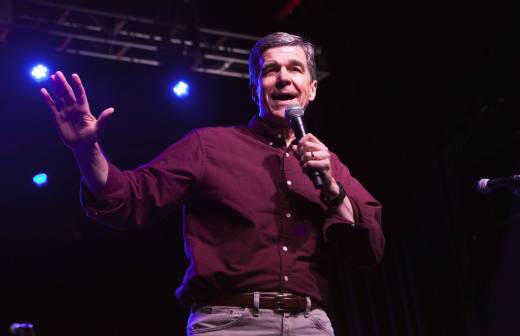New handbook for data officers brings states up to speed

The Beeck Center for Social Impact and Innovation at Georgetown University last week published a new framework designed to help state governments understand how chief data officers can be most effective as data becomes a more common tool to further policy goals.
The two documents arrive as governors increasingly rely on data to guide decisions on reopening their economies during the coronavirus pandemic and as law enforcement agencies reckon with issues of police brutality and racism.
Tyler Kleykamp, a former Connecticut data chief who runs the Beeck Center’s State Chief Data Officers Network, said he hopes the framework will be helpful to states that have a CDO, but also those considering to create the position.
“There’s a lot of excitement with data in states and they get pulled in a lot of different directions, so putting a framework in place that can be followed to almost bring some order to the chaos is really something we heard would be super valuable,” Kleykamp said.
In addition to supporting response to current events like the pandemic and nationwide protests, he said, data can also further goals around more evergreen issues.
“There’s this emphasis on how can we reduce the cost of our data storage or things like that, and there’s value in doing that,” Kleykamp said. “But states can improve peoples’ lives more dramatically by investing in additional data infrastructure and chief data officers, by better leveraging data around whether it’s reducing incarceration, closing the achievement gap in education, reducing health disparities across Medicaid systems.”
State chief data officers may also be in particular need of guidance as many of the positions were recently turned over. Kleykamp estimated that about 16 states have either created a new chief data officer position or hired a new official within the last six months. Those who were hired during the pandemic, he said, probably didn’t have time to learn the intricacies of the role.
An analysis of state of the state addresses conducted by the Beeck Center showed that only two governors even mentioned data, Kleykamp said, but now governors are talking about data every day. The framework aims to disseminate knowledge on the core responsibilities of the chief data officer role and educate legislators and top government executives to ensure that states’ data programs are sustainable.
“Especially as the conversation now turns even more to addressing institutional and systemic racism in states, we’re going to see data brought back into the forefront again through things like police transparency or other data-collection initiatives that might not be there before,” Kleykamp said. “I think the timing is really helpful for states as they start to think how they can better leverage data.”




